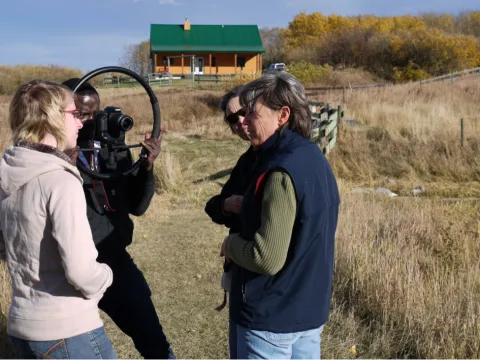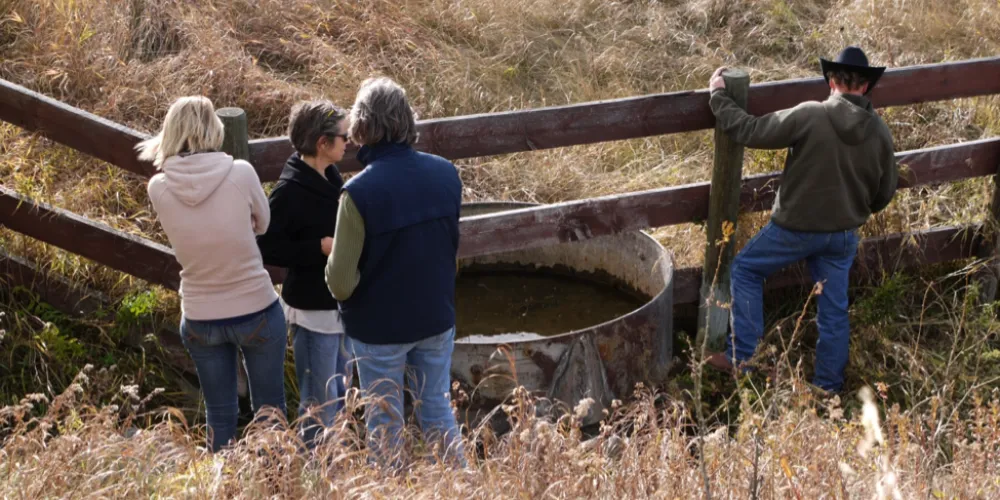Rural and Urban Reciprocity Project

Carol Williams has incorporated, or produced, oral histories within her research since 1993 when she, and co-investigator Dr. Lynne Bell (USASK), interviewed women artists and educators across Canada including Doreen Jensen (Gitskan First Nation), Sara Diamond, Laiwan, Wilma Needham, Jamelie Hassan, Melinda Mollineaux, Ruth Cuthand, Susan McEachern, Aganetha Dyck, Lee Ann Martin, among others. Select interviews from this project, funded by a SSHRC Strategies for Change grant, were published in journals between 1998 and 1997.
More recently, as 2013-2015 Board of Governors Humanities Chair at University of Lethbridge, Williams utilized pre-existing oral histories to better understand Blackfoot/Blackfeet and Cheyenne women’s labour during the great depression and in the post WWII era. Oral histories retrieved from the Montana Historical Society’s collections such as “Montanans at Work” and “Native American Women Educators” show how women who lacked occupational training or higher education sought contingent or non-standard casual labour in order to provide for their families during hard times.
A third project, funded by the Alberta Research and Development Network (ARDN) titled “Rural and Urban Reciprocity: A Study of Ranching Life, Agricultural Land Use and Labour” (2012) sought regional insights into the contemporary agricultural and ranching life. After consultation with representatives of the Southern Alberta Land Trust (S.A.L.T.S.) I, and co-investigator documentary photographer Don Gill and some students in training, endeavoured to learn of the most pressing user concerns about regional changes in land use. A modest number of individual land holders and operators working the land today were interviewed and the following perspectives were expressed: an absolute commitment to protect regional watersheds; a commitment to grassland protection; a call for educational outreach to urban residents to expose the impact of urban and suburban development; and the signficance of history and heritage to fully understand the value of small independent agricultural or ranchland operations in Southern Alberta.

